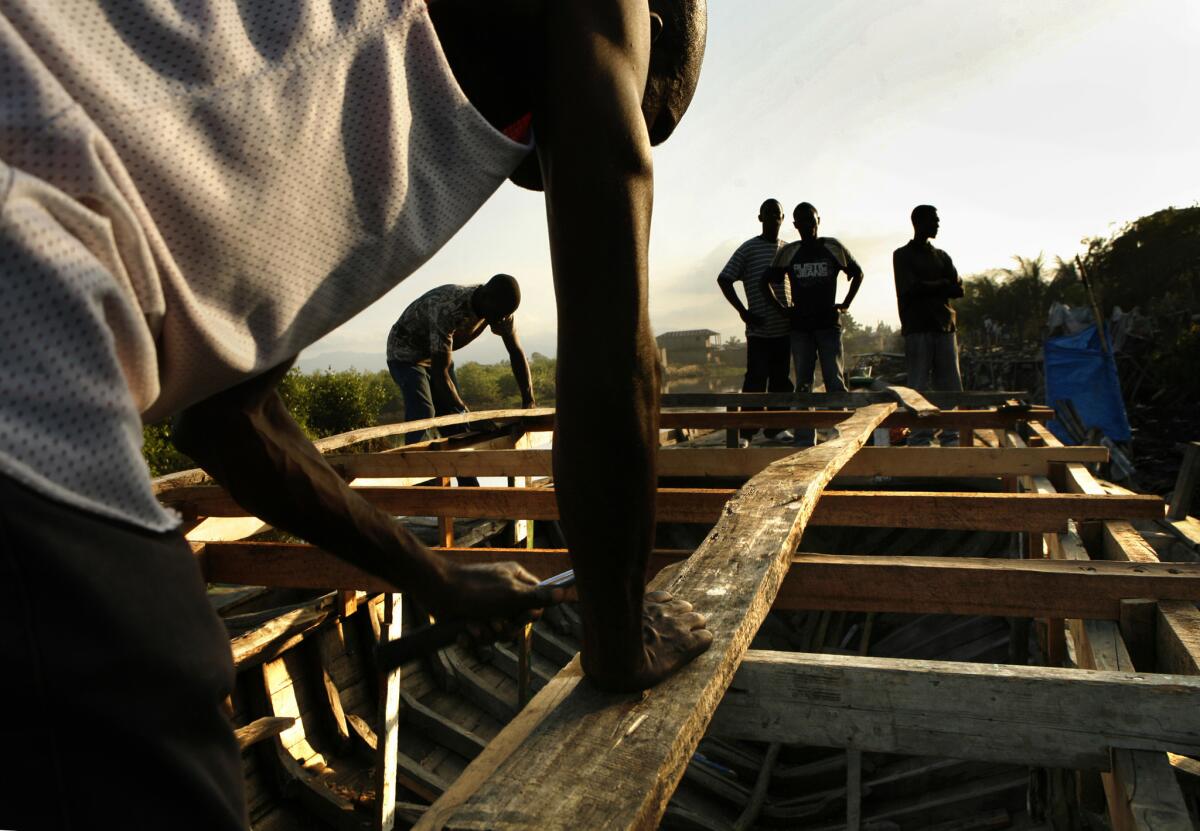Haitians found at sea not screened for asylum, U.N. agency says

- Share via
The U.S. and other countries have failed to properly screen Haitians found at sea to determine if they have “a credible fear” of violence and persecution, the U.N.’s refugee agency said Friday.
Less than four weeks into the year, more than 180 Haitians have been found in Caribbean waters, almost all of whom were sent back to Haiti, the refugee agency said. Four others are being held in Dominica, their fate unknown, spokeswoman Charity Tooze said. The numbers, which are unusually high for such a short period, have drawn new attention to the problem.
Whereas Cubans are screened by U.S. officials to see if they merit protection as refugees, Haitians are not, the U.N. refugee agency said. Haitians are considered for asylum only if they scream or otherwise call attention to themselves in a manner indicating they are terrified to return home.
“People should be screened for credible fear, rather than having the burden of having to shout their way to be noticed,” said Leslie Velez, senior protection officer with the U.N. refugee agency. “We want a uniform process for all nationalities.”
The agency said it knew of no Haitian granted asylum in any Caribbean country after being intercepted at sea over the last two years. That fact is striking because, when Haitians reach U.S. soil and petition for asylum, roughly half are granted it.
Rights groups have long complained that the U.S. does not give all immigrants the same chance to plead their case when found on rickety boats trying to reach other shores.
Fears of a mass exodus and the assumption that Haitians were simply fleeing the extreme poverty of the island have influenced their treatment in decades past, experts say. Between 1981 and 1990, for instance, only 11 out of nearly 23,000 Haitians found at sea were considered eligible to apply for U.S. asylum, according to the Council on Hemispheric Affairs.
Unlike Cubans, who were able to push for some added protections, “the Haitians had very little political clout,” said Larry Birns, director of the council. “Theirs was a muffled voice.”
That is beginning to shift as the Haitian diaspora becomes more empowered, Birns said, but its influence “has been imperceptible until recently.”
Though the U.S. relaxed some immigration rules for Haitians in the aftermath of Haiti’s devastating 2010 earthquake, it has continued sending those encountered at sea back to their country. Immediately after the quake, Secretary of State Hillary Rodham Clinton reiterated that Haitians trying to reach U.S. shores “will be interdicted, they will be repatriated.”
U.S. and Haitian officials say they don’t want to encourage Haitians to make the dangerous journey.
Last year, nearly 2,600 people were intercepted trying to cross the Caribbean, mostly Haitians and Cubans, according to the U.N. refugee agency. At least 71 people died and 63 are missing, it said.
Over the weekend, a Haitian woman was found dead off the coast of Dominica, though the circumstances leading to her death were unknown.
Many factors drive the refugees to attempt the journey: Haiti suffers from poverty and instability, as well as corruption, police killings and a dysfunctional justice system, according to rights groups. A cholera epidemic has killed thousands there, and about 400,000 people still live in camps since the quake ravaged the island.
ALSO:
Russian lawmakers give initial OK to gay ‘propaganda’ bill
Protesters slam Egypt government two years after revolution
Some Israelis used ‘strategic voting’ in parliamentary elections
More to Read
Sign up for Essential California
The most important California stories and recommendations in your inbox every morning.
You may occasionally receive promotional content from the Los Angeles Times.










